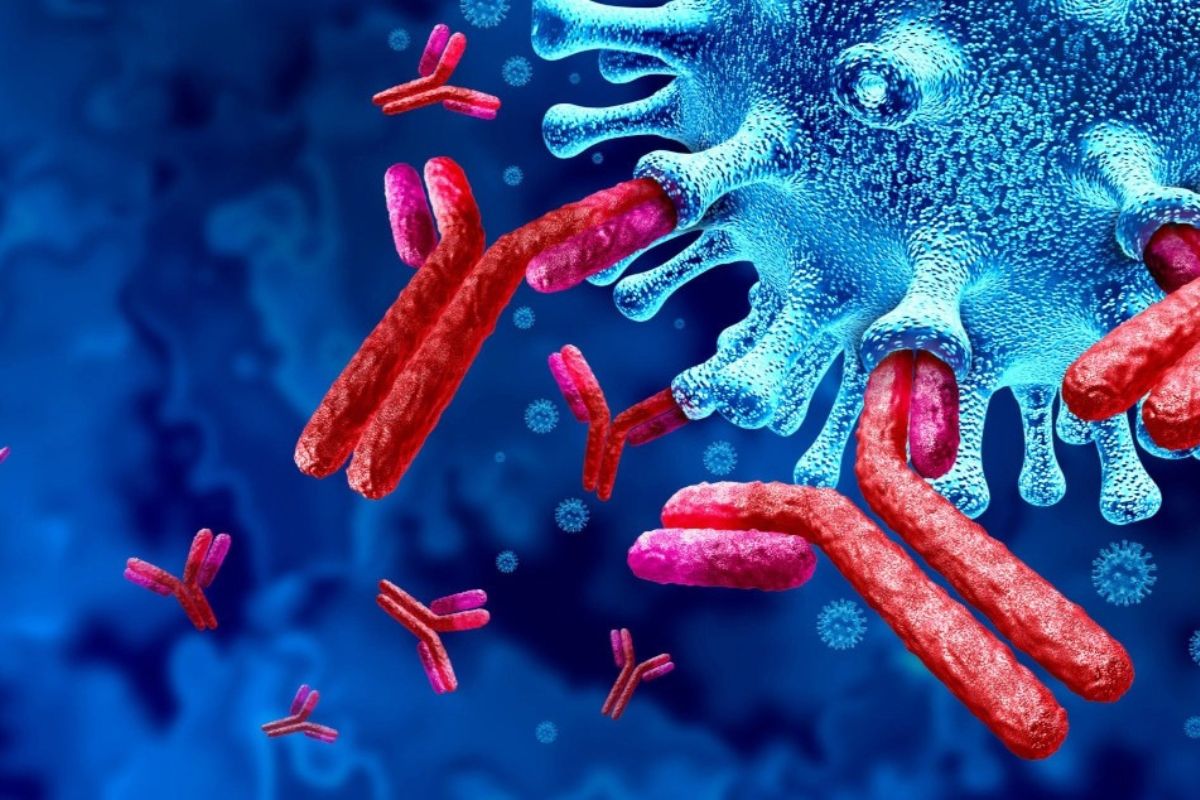
Immunoglobulin, also known as antibodies, are proteins produced by the immune system to fight off infections and diseases. These vital molecules play a crucial role in identifying and neutralizing foreign invaders like bacteria, viruses, and toxins. But what makes immunoglobulin so fascinating? For starters, there are five main types: IgA, IgD, IgE, IgG, and IgM, each with unique functions and locations in the body. Did you know that IgG is the most abundant type in human blood, making up about 75% of all antibodies? Or that IgE is responsible for allergic reactions? Understanding these facts can help you appreciate how your body defends itself daily. Ready to dive into more intriguing details about immunoglobulin? Let's get started!
What is Immunoglobulin?
Immunoglobulins, also known as antibodies, are proteins produced by the immune system to fight off infections. They play a crucial role in identifying and neutralizing foreign invaders like bacteria and viruses.
- Immunoglobulins are produced by B cells, a type of white blood cell.
- There are five main classes of immunoglobulins: IgA, IgD, IgE, IgG, and IgM.
- IgG is the most common type, making up about 75% of all antibodies in the blood.
- IgA is found in mucous membranes, such as the gut, respiratory tract, and urogenital tract.
- IgM is the first antibody produced in response to an infection.
- IgE is involved in allergic reactions and helps protect against parasitic infections.
- IgD is the least understood and is found in small amounts in the blood.
How Do Immunoglobulins Work?
Immunoglobulins recognize and bind to specific antigens on the surface of pathogens. This binding can neutralize the pathogen directly or mark it for destruction by other immune cells.
- Each immunoglobulin has a unique structure that allows it to bind to a specific antigen.
- The variable region of the immunoglobulin is responsible for antigen binding.
- The constant region determines the class of the immunoglobulin and its role in the immune response.
- Immunoglobulins can neutralize toxins produced by bacteria.
- They can also prevent viruses from entering and infecting cells.
- Immunoglobulins can activate the complement system, a group of proteins that help destroy pathogens.
- They can opsonize pathogens, making them easier for phagocytes to engulf and destroy.
The Role of Immunoglobulins in Vaccination
Vaccines work by stimulating the production of immunoglobulins against specific pathogens. This prepares the immune system to respond quickly and effectively if exposed to the actual pathogen.
- Vaccines contain antigens that mimic parts of the pathogen.
- These antigens stimulate B cells to produce specific immunoglobulins.
- Memory B cells are also produced, which can quickly generate immunoglobulins upon re-exposure to the pathogen.
- Booster shots increase the levels of immunoglobulins and enhance long-term immunity.
- Some vaccines require multiple doses to achieve adequate immunoglobulin levels.
- Immunoglobulins produced in response to vaccines can last for years, providing long-term protection.
Immunoglobulin Deficiencies and Disorders
Some individuals have deficiencies or disorders related to immunoglobulins, leading to increased susceptibility to infections and other health issues.
- Primary immunodeficiency disorders are genetic and affect the production or function of immunoglobulins.
- Common variable immunodeficiency (CVID) is a primary immunodeficiency that leads to low levels of immunoglobulins.
- Selective IgA deficiency is the most common primary immunodeficiency, affecting about 1 in 500 people.
- Secondary immunodeficiency can result from infections, medications, or other medical conditions.
- HIV/AIDS is an example of a secondary immunodeficiency that affects immunoglobulin production.
- Autoimmune diseases can involve the production of abnormal immunoglobulins that attack the body's own tissues.
- Monoclonal gammopathy of undetermined significance (MGUS) is a condition where abnormal immunoglobulins are produced, which can sometimes progress to multiple myeloma.
Therapeutic Uses of Immunoglobulins
Immunoglobulins are not only crucial for natural immunity but also have therapeutic applications in medicine.
- Intravenous immunoglobulin (IVIG) therapy involves administering immunoglobulins to treat various immune deficiencies and autoimmune diseases.
- IVIG is used to treat conditions like Kawasaki disease, Guillain-Barré syndrome, and chronic inflammatory demyelinating polyneuropathy (CIDP).
- Immunoglobulin replacement therapy helps individuals with primary immunodeficiency maintain adequate antibody levels.
- Monoclonal antibodies, a type of immunoglobulin, are used in cancer treatment to target specific cancer cells.
- Monoclonal antibodies can also be used to treat autoimmune diseases by targeting specific components of the immune system.
- Anti-venom treatments often involve immunoglobulins that neutralize toxins from snake bites or other venomous creatures.
Immunoglobulin: A Fascinating World
Immunoglobulin, or antibodies, play a crucial role in our immune system. They help identify and neutralize pathogens like bacteria and viruses. With five main types—IgA, IgD, IgE, IgG, and IgM—each has a unique function. For instance, IgG provides long-term immunity, while IgE is involved in allergic reactions. These proteins are produced by B cells and can be found in blood, saliva, and even breast milk. Understanding immunoglobulins can lead to better vaccines and treatments for autoimmune diseases. They’re not just vital for health; they’re also used in diagnostic tests and therapies. From fighting infections to aiding in medical research, immunoglobulins are indispensable. So, next time you think about your immune system, remember these tiny but mighty defenders working tirelessly to keep you healthy.
Was this page helpful?
Our commitment to delivering trustworthy and engaging content is at the heart of what we do. Each fact on our site is contributed by real users like you, bringing a wealth of diverse insights and information. To ensure the highest standards of accuracy and reliability, our dedicated editors meticulously review each submission. This process guarantees that the facts we share are not only fascinating but also credible. Trust in our commitment to quality and authenticity as you explore and learn with us.
